Ongoing determination to manage waste responsibly
As with most industrial operations, nuclear power plants generate waste. Some of this waste, derived from plant operation, spent fuel recycling and the dismantling of decommissioned plants, is radioactive. EDF takes full responsibility for managing waste in such as a way as to ensure that it does not come into contact with people or the environment.
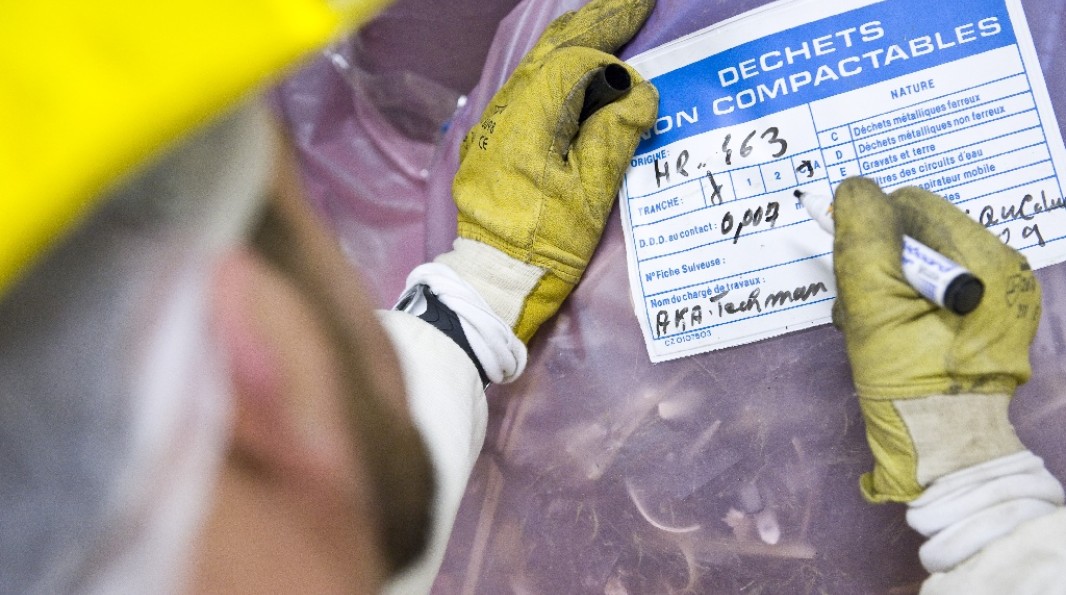
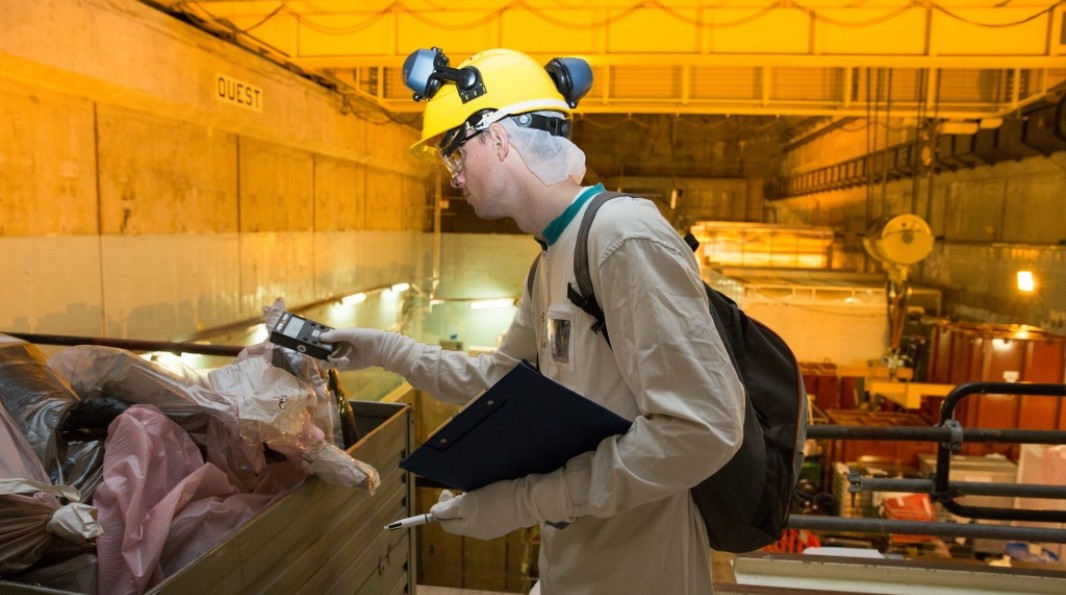

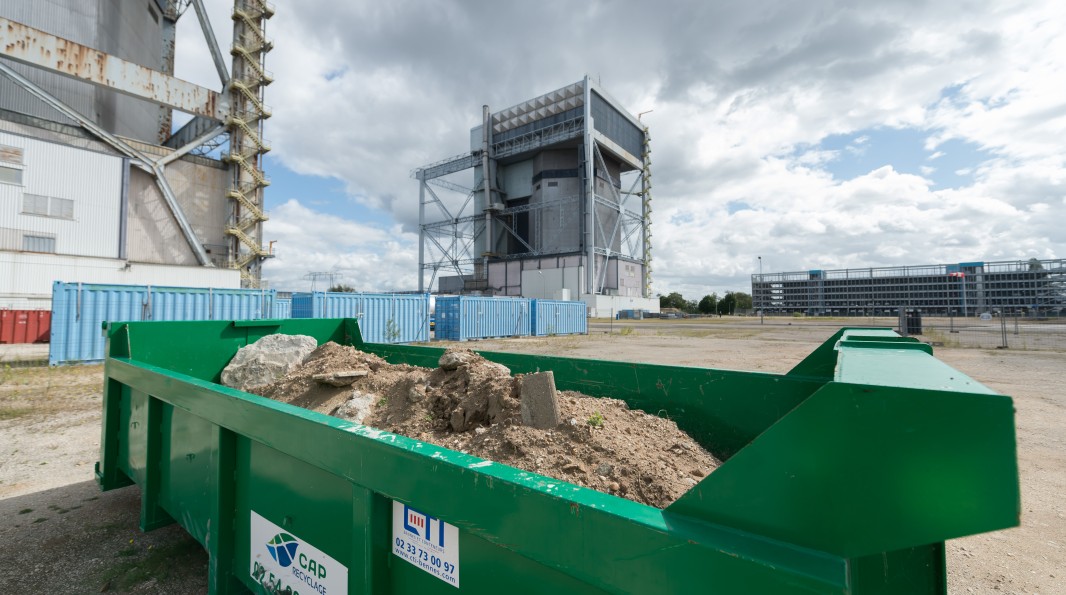
Limited at source, carefully sorted and processed prior to conditioning
- 90% of the waste is made up of filters, resins, valves, vinyl and fabric, metals and rubble, with low levels of radioactivity and limited half-lives;
- The waste derived from nuclear spent fuel reprocessing accounts for most of the remaining 10%. Highly radioactive, its half-life can reach tens of thousands of years.
Once processed, the remaining waste is placed in sealed containers, adapted to the nature of the waste and associated hazards (drums, metal boxes, concrete containers, stainless steel containers, etc.) in order to ensure that they are stored without impact on people or the environment.
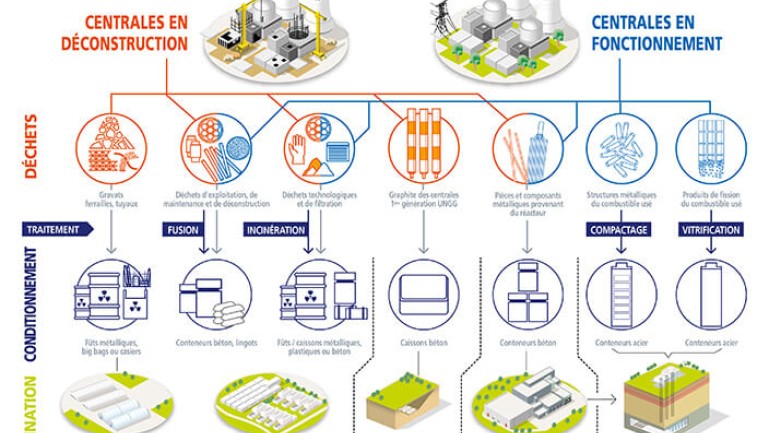
A storage solution for each type of waste
In France, radioactive waste management is strictly regulated by the Law of 28 June 2006. Producers of waste (including EDF) are technically and financially responsible for their waste. It falls to the French National Waste Management Agency (Andra) to design, build and operate the required waste disposal facilities.
The most radioactive 10% of waste is currently conditioned in stainless steel containers and placed in intermediate storage at Orano’s La Hague plant (waste derived from the processing of spent fuel). Given its half-life, the law stipulates the transfer of these containers to the Industrial Centre for Geological Disposal (Cigéo). Built on the boundary between the Meuse and Haute-Marne departments, Cigéo is scheduled to open in 2035. Waste will be stored in drifts hollowed out 500 metres below ground, in a stable geological environment, embedded in impermeable claystone.
In the United Kingdom, where the legislation is different, EDF Energy is working with the Nuclear Decommissioning Authority (NDA), which is responsible for waste storage. Low and intermediate level waste is kept in dedicated facilities within the power plants, and ultimately compacted, incinerated, or recycled. High-level waste is currently vitrified and placed in intermediate storage at the Sellafield reprocessing plant. In 2006, the British government took the decision to ultimately store the waste in deep geological repositories.
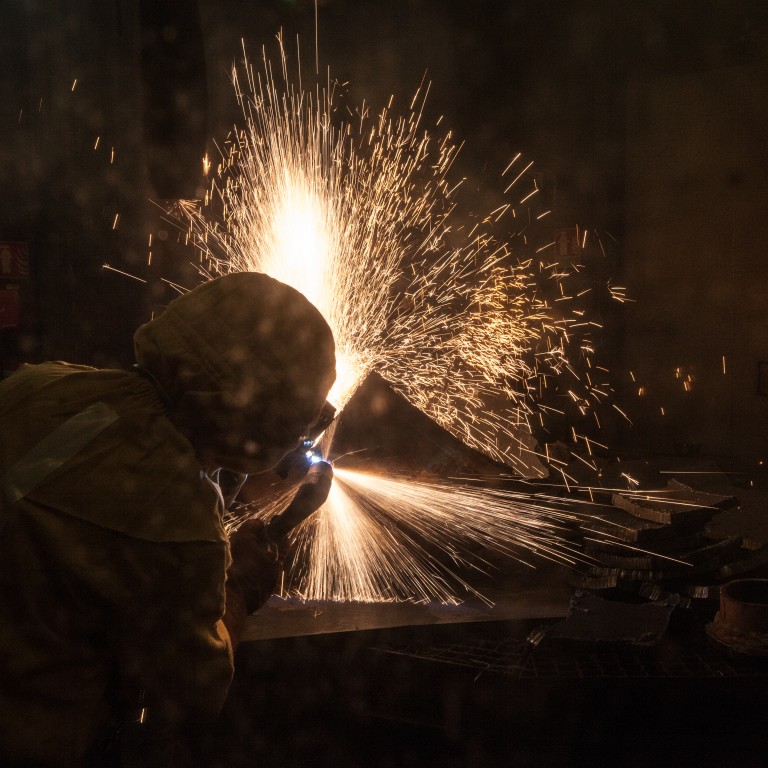
Cyclife: a subsidiary dedicated to dismantling and radioactive waste management services
Cyclife, a subsidiary of EDF, offers clients support services for the dismantling of nuclear power plants as well as radioactive waste treatment services. Cyclife has 3 industrial sites in Europe (France, Sweden and United Kingdom), each with a waste stream designed to drastically reduce the volume of waste and, depending on regulations, to recycle it.

